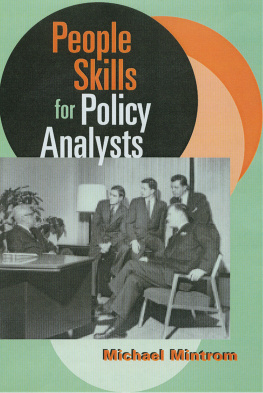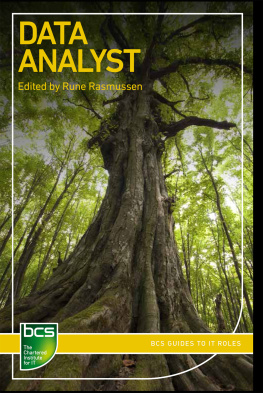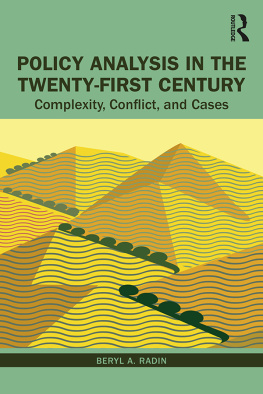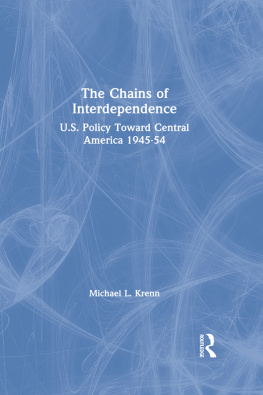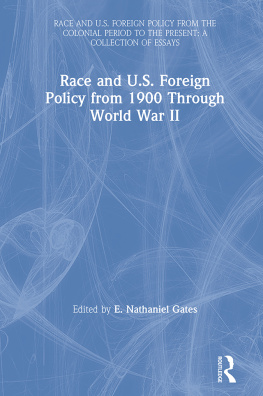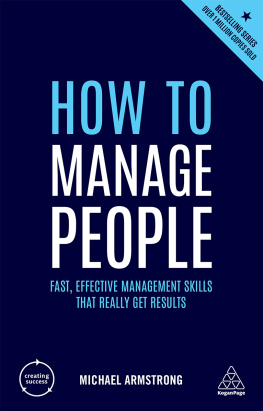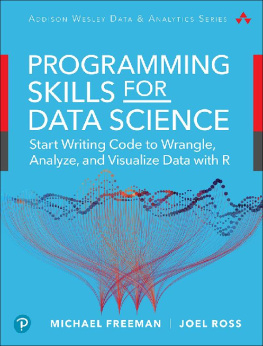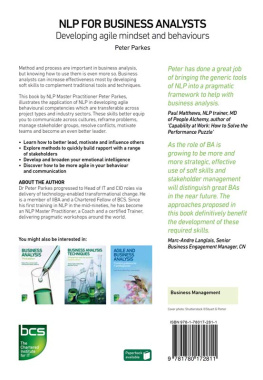Georgetown University Press, Washington, D.C.
2003 by Georgetown University Press. All rights reserved.
Printed in the United States of America
10 9 8 7 6 5 4 3 2 1 2003
This volume printed on acid-free offset book paper.
Library of Congress Cataloging-in-Publication Data
Mintrom, Michael, 1963
People skills for policy analysts / Michael Mintrom.
p. cm.
Includes bibliographical references and index.
ISBN 0-87840-900-9 (pbk. : alk. paper)
1. Policy sciences. 2. Communication in organizations. I. Title.
H97.M56 2003
320.6dc21
2002013811
Preface
Effective policy analysts need both sound technical skills and superb people skills. Over many years of teaching courses in public policy analysis, I typically have augmented my lectures on applied microeconomic analysis and other topics relevant to policy analysis with workshops on topics such as interviewing informants, working in teams, and giving presentations. The popularity of these workshops among students led me to solicit their ideas for additional topics to cover. It was through this process of offering workshops and inviting student feedback that I struck upon the idea of writing this book.
The actual plan for the book emerged during a series of conversations. I especially wish to thank Jacqui True, for her initial encouragement to write the book, and Richard Callahan, director of the University of Southern Californias Sacramento Center, who provided invaluable comments on my early ideas. Gail Grella, at Georgetown University Press, also expressed considerable interest in the plan for the book and gave me continual encouragement during the writing process. I began writing the chapters in 2001, while on leave from Michigan State University and visiting the School of Policy, Planning, and Development at the University of Southern California, where I taught courses in public finance and intergovernmental management. I continued with this work while a program visitor in the political science program in the School for Social Science Research at the Australian National University later that year. The Department of Political Science at Michigan State provided a supportive environment for completing the project. I am grateful to my spring 2002 undergraduate and graduate public policy analysis students at Michigan State University. In both classes, teams of students presented material from draft chapters of this book, and many provided extremely helpful suggestions for how the chapters could be improved. My research assistant, Joshua Spaulding, read and commented on each chapter.
As the book progressed, I commissioned the set of statements from policy practitioners and scholars that are contained in the epigraphs to 11. These statements reflect their own views. They do not represent the positions of the organizations with which the authors are associated. I would like to thank the authors for taking time from their busy schedules to make these contributions. I am proud to note that six of them are former students of mine. In several cases, the authors also provided insightful comments on the draft chapters. Finally, I wish to thank the anonymous reviewers of the manuscript for their enthusiastic responses and their helpful suggestions for improvements.
Policy Analysts and People Skills
People become policy analysts because they care deeply about society. They want to help improve how we live our lives. This book is designed to aid those training to be policy analysts, and junior practitioners, to become more effective at what they do. The focus of the book is people skills. People skills are habits we cultivate that allow us to make good use of our time, to work well with others, and to communicate our ideas so that they are influential. I hope to make policy analysts more self-conscious of their behavior and to encourage the widespread improvement of their people skills. Beyond the other direct and spillover benefits to be gained from well-developed people skills, becoming an effective people person can add immeasurably to the sense of fulfillment and the pleasure that policy analysts attain from their work.
Over the past few decades, the training of policy analysts has grown increasingly standardized and sophisticated. University programs in public policy, policy analysis, and public management routinely offer courses designed to ensure that their graduates are familiar with the microeconomic foundations of policy analysis and that they know how to utilize qualitative and quantitative research methods. In addition, students in such programs typically take courses drawing on insights from a range of academic disciplines that are designed to build their knowledge of, among other things, organization theory, the politics of policymaking, public finance, and program evaluation. Undoubtedly, these advances in how policy analysts are trained have raised the quality of the analytical work and advice that inform public policy decisions. Despite these positive developments, however, practicing policy analysts and policy scholars continue to lament the frequency with which policymakers in a wide variety of public contexts appear to pay little attention to the work of policy analysts when it is laid before them (Beam 1996; Mooney 1991; Shulock 1999; Weiss 1977). Can we do better?
Highly effective policy analysts display both superb technical expertise and excellent people skills. The premise of this book is that, although considerable strides have been made in the technical training that policy analysts receive, the task of guiding policy analysts in the development of their people skills has been all but ignored. This neglect works to the detriment of the policy analysts themselves and to that of policymaking more generally. Perhaps such neglect is inevitable. As a society we often discount the importance of people skills to the quality of our lives. We frequently assume that some people are just naturally gifted at getting along with others, managing their time, making presentations, working in teams, or networking. Sometimes, it is said that such skills need not be taught in university programs because smart people will pick them up on the job. Such discounting of people skills, and what it takes to develop them, serves to arbitrarily demarcate what sort of knowledge is most valuable for policy analysts.
Policy scholars and practitioners have long worked to develop technical approaches and procedures that can usefully inform the ways that policy analysts assess the feasibility and merits of alternative approaches to addressing policy problems. Likewise, many people have contributed ideas and suggestions for how we might improve our abilities to communicate and collaborate with others. Nevertheless, though many technical approaches and insights have been codified and integrated into the training of policy analysts, no such effort has been made to do the same with the disparate contributions that could inform how policy analysts interact with people around them.
Policy analysts are not born; they are made. Because we believe this, a great deal of thought has gone into the structuring of university programs on public policy, policy analysis, and public management so that technical skills are well taught. Yet, if we believe that good policy analysts are made, we should also pay closer attention to the relevance of people skills and think seriously about how to impart them. As to whether excellence in the use of technical skills requires more analytical sophistication than does excellence in the use of people skills, I have yet to make up my mind. For those who claim that technical skills are obviously the hard stuff, I ask, How so?


